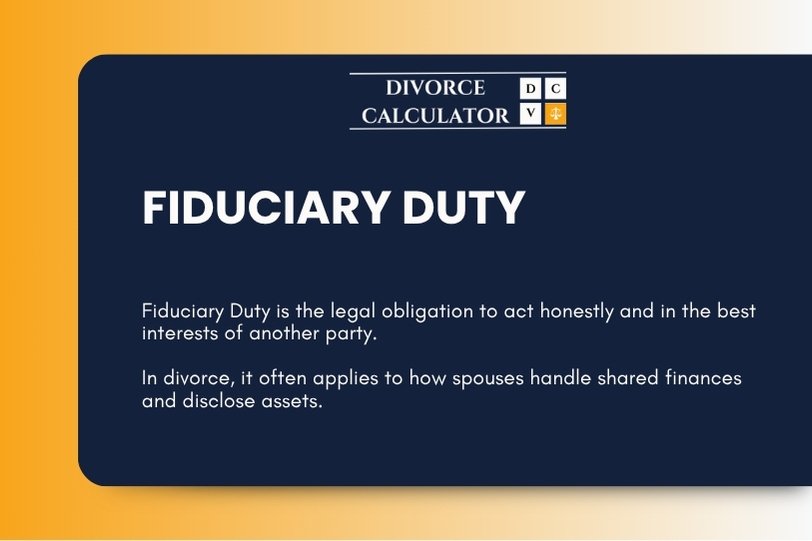Fiduciary duty is a legal and ethical responsibility where one party must act in the best interest of another. We often hear this term in financial, legal, or business settings, but its importance extends beyond these fields. When a fiduciary relationship exists, trust and accountability become critical.
Understanding fiduciary duty helps us recognize when we are counting on someone to prioritize our interests, such as with financial advisors, lawyers, or corporate directors. Knowing what fiduciary duty means can better protect our rights and guide how we approach important decisions.
Key Takeaways
We recognize that fiduciary duty is a legal obligation requiring one party to act in the best interest of another. This duty is most common in relationships such as trustee-beneficiary, attorney-client, and corporate board-shareholder.
Fiduciaries must demonstrate loyalty and good faith. This means avoiding conflicts of interest and never profiting at the expense of those they represent.
Key elements of fiduciary duty include:
- Putting client interests first
- Full disclosure of relevant information
- Acting with care, skill, and diligence
A breach of fiduciary duty can result in legal action or financial penalties. Our responsibilities are clear: maintain transparency and act ethically in every decision.
Typical relationships involving fiduciary duties:
| Fiduciary | Beneficiary |
|---|---|
| Lawyer | Client |
| Trustee | Beneficiary |
| Corporate Board | Shareholders |
| Agent | Principal |
By understanding these principles, we reinforce trust and credibility in our professional roles. Ensuring we adhere to these duties protects both our clients’ interests and our professional integrity.

Why It Matters in Divorce
When we go through a divorce, fiduciary duty has a direct impact on how assets, debts, and other financial matters are handled. Each spouse owes the other a duty of honesty, disclosure, and fair dealing.
If one of us hides income, assets, or debts, it can not only impact the division of property but might also result in legal consequences. Full transparency helps ensure a fair outcome for both parties.
Key reasons fiduciary duty matters in divorce:
- We must provide accurate and complete financial disclosures.
- It prevents unfair advantage by either spouse.
- Non-disclosure or dishonesty can lead to court penalties.
| Duty | Description | Importance in Divorce |
|---|---|---|
| Duty of Disclosure | Revealing all assets and debts | Enables equitable division |
| Duty of Loyalty | Acting in the other’s best interest financially | Prevents exploitation |
| Duty of Good Faith | Honest and fair communication and negotiation | Supports fair agreements |
Divorce often brings emotional challenges, but by respecting fiduciary duty, we help streamline the process. It builds trust during negotiations and reduces conflict, benefiting everyone involved—especially if children are part of the family.
Real-Life Examples
We often see fiduciary duty arise in finance, such as when financial advisors manage our investments. They must act in our interest, avoid conflicts, and disclose any relevant information.
In the legal field, attorneys owe a fiduciary duty to us as their clients. This means they must keep our information confidential and prioritize our best interests, even above their own.
Another example involves corporate boards. Directors and officers have a fiduciary responsibility to act for the benefit of the shareholders and the company, not for personal gain.
Trustees managing a trust for beneficiaries are classic fiduciaries. They must handle trust assets prudently and transparently, keeping our needs as beneficiaries in mind at all times.
| Example | Role | Key Duty |
|---|---|---|
| Financial Advisor | Advisor | Invest client funds ethically |
| Attorney | Legal Counsel | Protect client confidentiality |
| Corporate Director | Board Member | Serve company and shareholders |
| Trustee | Asset Manager | Manage trust for beneficiaries |
By understanding these examples, we can better recognize when fiduciary duties apply in our daily and professional lives.
How States Handle It
States approach fiduciary duty with varying rules, enforcement priorities, and legal tests. We see differences in statutory definitions, court precedents, and remedies for breach that often reflect local economic structures and legal traditions.
New York
In New York, fiduciary duty is shaped by case law and firmly integrated into business, trust, and real estate matters. The state’s courts apply a strict standard for loyalty and care. For corporate directors and officers, the Business Corporation Law (BCL) imposes clear duties to act in the best interests of the corporation and its shareholders.
We notice beneficiaries can seek a broad range of legal remedies for breaches, including compensatory and sometimes punitive damages. Trustees and attorneys are held to a high standard of disclosure, and conflicts of interest are aggressively scrutinized in court. In partnership disputes, courts often apply the “utmost good faith” test.
California
California statutory law, particularly the Corporations Code and Probate Code, outlines fiduciary obligations for many roles including directors, agents, and trustees. Directors must act with reasonable care and in good faith, making decisions they believe serve the best interests of the corporation.
We see that California courts are proactive in reviewing alleged breaches. Remedies frequently include equitable relief, such as injunctions or accountings. Notably, California extends fiduciary protections to partners in informal business arrangements like joint ventures and LLCs. The state also enforces transparency and disclosure in real estate transactions as a matter of public policy.
Texas
Texas takes a distinctive view of fiduciary duty, especially in its robust recognition of informal fiduciary relationships. State law emphasizes the underlying relationship of trust, even if there is no written agreement.
According to Section 21.401 of the Business Organizations Code, corporate officers, directors, and managing partners are fiduciaries by statute. We find that Texas courts also recognize confidential relationships (such as between close business associates or family) as giving rise to fiduciary duties. Breaches may result in damages, fee forfeiture, or profit disgorgement. The Texas Supreme Court frequently interprets and refines fiduciary requirements through detailed opinions.
Florida
Florida defines fiduciary duties mainly through statutes applying to trustees, business managers, and professional advisers. Under Florida law, fiduciaries are required to act prudently, loyally, and in full compliance with their obligations. The Florida Business Corporation Act codifies these duties.
We see courts here consider both statutory and common law principles in assessing breaches. In the context of estates and trusts, Florida enforces a prudent investor standard for asset management. Remedies for breach include monetary damages, removal of fiduciaries, or rescission of contracts. Guardians, agents, and personal representatives are also subject to close judicial oversight to protect the rights of beneficiaries.
Tips If You’re Dealing With Fiduciary Duty
When we are responsible for a fiduciary duty, it’s important to document all actions and decisions. Clear and complete records can help us support our choices if questions arise.
We should prioritize transparency. Sharing relevant information and updates with stakeholders can minimize misunderstandings and build trust.
If we’re unsure about an obligation, it’s advisable to seek legal or professional advice. Fiduciary rules can be complex, and expert guidance ensures we act within our responsibilities.
Here are some basic steps to consider:
| Action | Why It Matters |
|---|---|
| Maintain good records | Supports transparency and trust |
| Disclose conflicts | Prevents breaches of duty |
| Act in best interests | Upholds legal and ethical standards |
We need to avoid any conflicts of interest. If a potential conflict arises, we should disclose it promptly and recuse ourselves from relevant decisions.
Regularly reviewing our fiduciary obligations helps us stay aligned with current rules. Laws and expectations can change, so ongoing education is useful.
If we delegate any fiduciary duties, it’s crucial to supervise those acting on our behalf. Oversight ensures they uphold the same standards expected of us.
Frequently Asked Questions
Fiduciary duty requires individuals, such as directors and real estate agents, to act in the best interests of those they serve. Understanding how breaches occur and the range of responsibilities involved helps us maintain compliance and protect stakeholders.
How can a breach of fiduciary duty be identified?
A breach can be identified when a fiduciary fails to act loyally, puts personal interests ahead of the beneficiary, or acts negligently. Indicators include undisclosed conflicts of interest, misuse of assets, or failure to provide necessary information.
Legal action often follows if harm results from the breach. Documentation and communication records are important in these cases.
What responsibilities do directors have under their fiduciary duties?
Directors must act in good faith, exercise due care, and always prioritize the corporation’s and shareholders’ interests. They are required to make informed decisions and avoid conflicts of interest.
Failure to fulfill these responsibilities can lead to liability for the director.
In what ways does fiduciary duty apply to real estate transactions?
Real estate agents must act honestly, disclose all material facts, and put their clients’ needs ahead of their own. This includes obtaining the best price, maintaining confidentiality, and avoiding self-dealing.
Failure to meet these standards may result in legal consequences for the agent.
Can you list the fundamental fiduciary duties?
The main fiduciary duties include the duty of loyalty, duty of care, and duty of good faith. There are also duties of disclosure and confidentiality.
Each duty applies depending on the specific relationship and legal context involved.
Could you provide examples of fiduciary duty in practice?
Examples include a trustee managing trust assets solely for beneficiaries’ benefit, a lawyer acting only for their client’s interests, or a director refraining from competing with their company.
In real estate, an agent negotiating the best deal for their client demonstrates this duty.
What duties does a fiduciary owe to shareholders?
Fiduciaries owe shareholders the duties of loyalty and care, meaning decisions should benefit the collective interests of shareholders and maintain transparency. Directors must provide accurate information and avoid actions that could harm shareholder value.
Shareholder interests should always be put before personal gain or competing interests.



